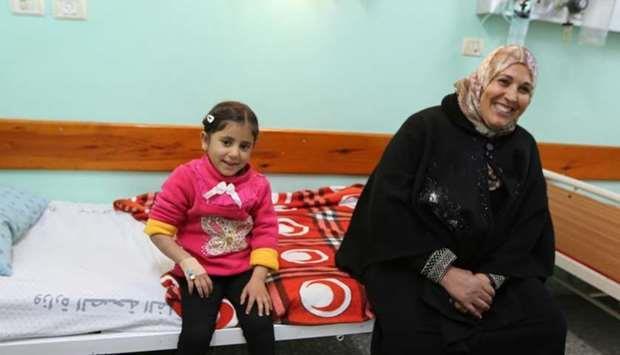
QC helps 350,000 patients in Gaza
About 350,000 people benefit from services provided under the project. The cost of these operations amounted to QR2.8mn, covering or contributing to the cost of the entire operations for poor patients at health centres and non-governmental hospitals.
Mohamed Abu Halub, director of the QC office in the Gaza Strip said that the project also covers the cost of some medicines, laboratory and diagnostic tests, which cannot be afforded by some patients, in addition to providing financial coverage for performing the surgery and staying overnight at hospitals, stressing that the proportion of the QC contributions ranges from 30% to 100%, depending on the patient's conditions.
Abu Halub said that the idea of the project is to support patients who need surgery that cannot be implemented in government hospitals because of the long lists of waiting patients.
He pointed out that the Poor Patient Project aims to help the poor overcome the disease he is suffering from and to alleviate his economic burden, in addition to maintaining physical health and protecting human being, as well as working on supporting health services provided by the private health institutions.
"We hope that the size of the benefit of this project will expand and a larger segment of patients will take advantage of it, especially as it is not a secret that in the Gaza Strip, more than a quarter of the one million population is unemployed and they do not have any sources of income" said Dr Saeed al-Shaer, director of Dar Al Salam Hospital, one of the partner private hospitals.
The QC Office in the Gaza Strip, under the framework of its health project, has recently contributed to improving the surgical services at the Indonesian hospital in the Gaza Strip, by providing Harmonic Scalpel, a surgical instrument, in collaboration with the Palestinian Ministry of Health.
The lack of the laparoscopic instrument has led to increase waiting lists of patients to receive health services, thus putting them at risk of complications and deterioration of their conditions.

Legal Disclaimer:
MENAFN provides the
information “as is” without warranty of any kind. We do not accept
any responsibility or liability for the accuracy, content, images,
videos, licenses, completeness, legality, or reliability of the information
contained in this article. If you have any complaints or copyright
issues related to this article, kindly contact the provider above.















Comments
No comment